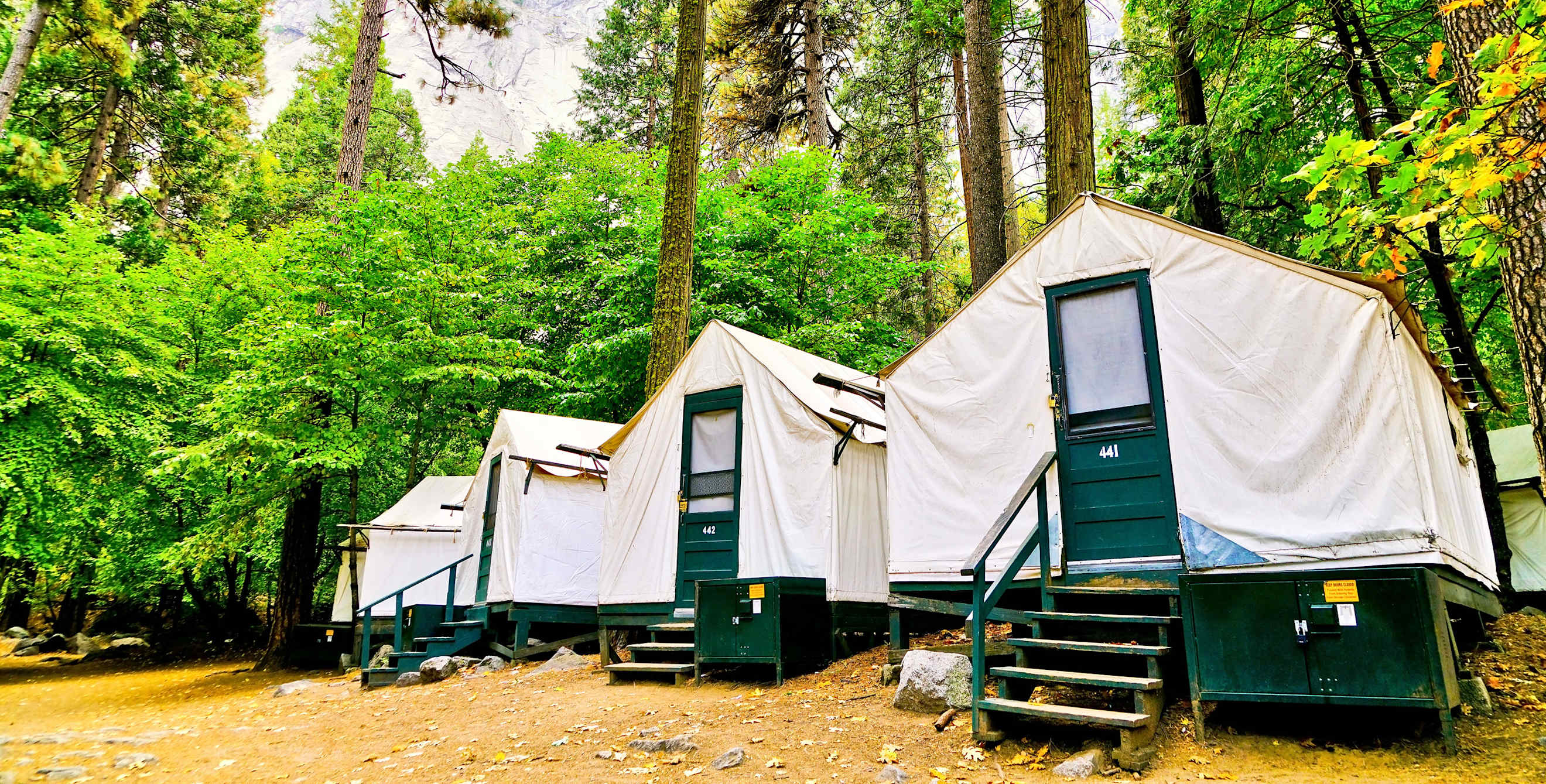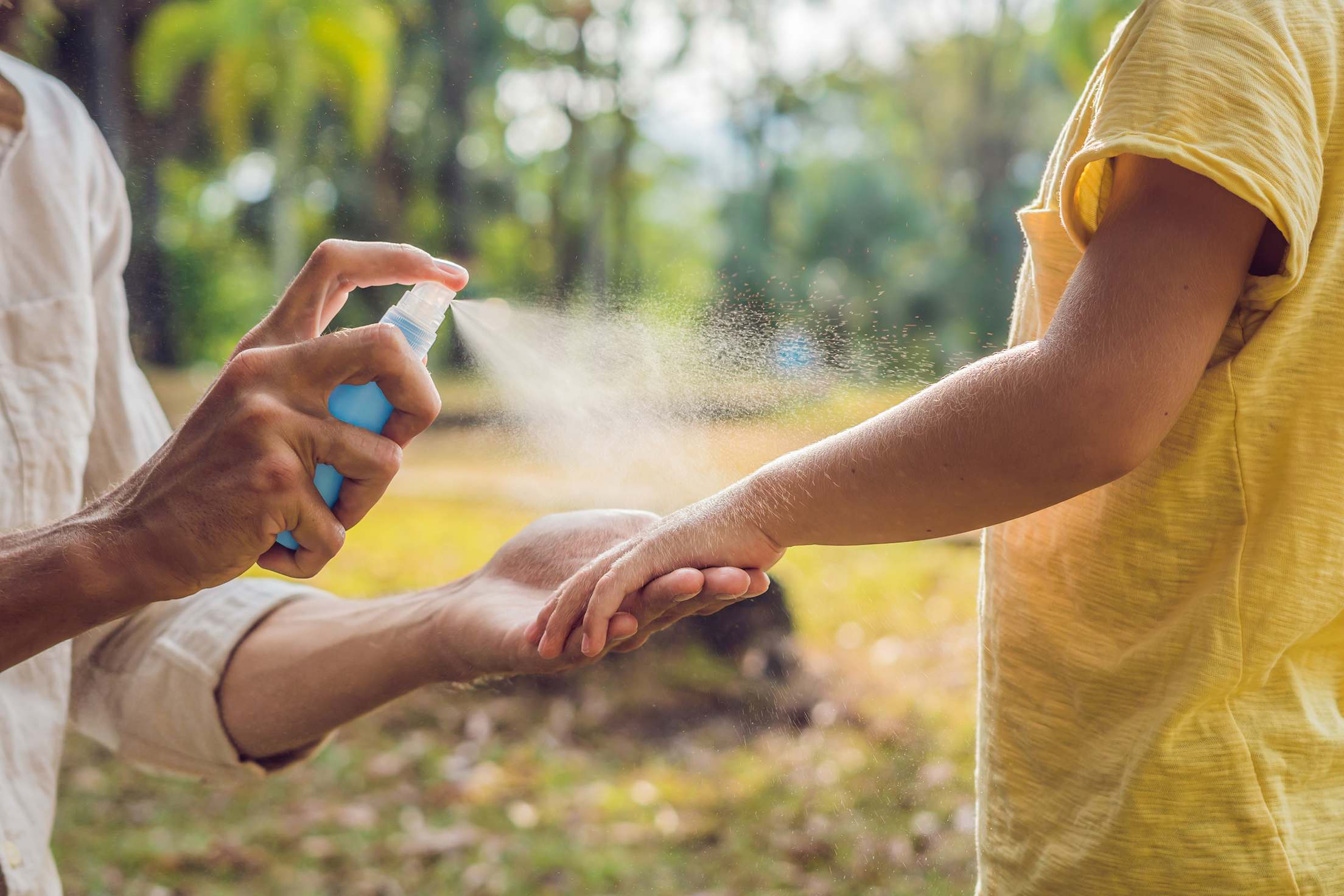
How to Keep Animals and Bugs Away Outdoors
Outsmart raccoons, avoid bears, and repel mosquitoes, flies, and ants with these tips.

One of the joys of spending time outside is experiencing nature, including spotting wildlife in its natural habitat. However, it’s best to avoid too-close encounters with many of these critters while you’re camping or hiking. Before arriving at your destination, check the park or forest website, or call ahead, to learn which specific precautions you should take. In general, here’s what outdoor experts recommend for staying safe and comfortable on trails and in campgrounds.
How to Stay Safe in Bear Country
Bears on the hunt for food will topple your tent or break a car window to retrieve anything that smells tasty.
“If you’re fortunate enough to have bear bins at your campsite, use them,” says Tim Beck, a member of the California Explorer Search and Rescue team who develops outdoor gear for the North Face. “These protect your food from all animals and make your day hike more stress-free.” If your site doesn’t come with a bin, buy or borrow a bear-safe canister, and store all your food and “smellies” (such as toothpaste, deodorant, bug spray, sunscreen, and trash) in it.
Smart Tip: You can rent bear canisters from many outdoor-gear shops, parks, and campgrounds. For example, you can rent one from a staffed wilderness-permit station at Yosemite National Park for a nominal fee (plus a refundable $95 deposit).
Your vehicle is not bear-proof: Leave food or even baby wipes inside, and you’re risking some serious damage. Keep all food and scented items in the onsite lockers, a bear-safe canister, or the bear-proof poles (provided at some campgrounds). If none of these options are available, pack everything in a waterproof bag and hang it from a high tree branch, away from the tree’s trunk and your tent.
During hikes in areas with bears, go with a group, make lots of noise while you walk (this scares off many other animals too), and always carry bear spray in a holster on your front (never in your pack) so you can grab it without looking. Never leave your backpack with food or personal care items unattended on the trail.
How to Keep Raccoons and Rodents Out of a Campsite
Everything that you do to deter bears will deter rodents too, but there’s more to consider: Mice, squirrels, and other rodents will chew through expensive tents and backpacks to get at what’s inside, yet another reason to store food in hard containers outside your tent or pack.
Raccoons, for their part, are masked bandits that will grab anything they can get their paws on. Coolers are a favorite source of water and treats for them, so padlock yours and place heavy items on top. Never leave food unattended, and be diligent about picking up spilled crumbs and carting away trash.
If you must relieve yourself outdoors, do it far from camp, “because the salty residue from urine can be a real attractant to critters, including all sorts of rodents,” says Lisa Maloney, an adventure journalist who writes hiking guidebooks. “The same goes for sweat on your pack, so plan to keep it on you instead of leaving it unattended at camp.”

How to Keep Bugs Away
Mosquitoes, ticks, ants, flies, and bees can be more than annoying by posing health risks. To keep them away from you, wear light-colored, loose-fitting clothing that covers as much of your body as possible. In heavily infested areas, clothes that are specifically labeled as bug-proof provide the most protection. Don mesh headgear if necessary, and drape high-quality mosquito netting around anything you want to keep flying critters out of, including your tent (for an extra layer of protection when you open the zipper).
At night, insects are drawn to flashlights’ bright white glow; instead, use a headlamp in green- or red-light mode. You can also light citronella candles or a full campfire if it’s appropriate for your spot and allowed—insects hate smoke.
DEET sprays and rubs are effective, but the chemical can be toxic to humans too. Talk to your pediatrician before using DEET-based repellents on children. If you’d rather try a plant-based repellent, go for one made with oil of lemon eucalyptus.
Don’t tramp around in overgrown grass, which is paradise for ticks. To keep the potentially Lyme disease-carrying parasites off you, use a permethrin spray, tuck your pants into your socks, and check yourself nightly. If you find a tick on you or one of your travel companions (dogs included), use clean, pointed tweezers to remove the tick immediately, as the Centers for Disease Control and Prevention recommends. If it left a bite mark, wash the skin with soap or rubbing alcohol and head to a doctor (or vet) if it starts to swell. Sleep in clean, dry clothes to prevent taking ticks and other insects (or irritants such as poison oak) that grabbed on during the day’s activities into bed with you.
Timing and location matter, too. Avoid places and seasons in which bugs flourish. Early to mid-summer is notorious for being high bug season at certain parks; call ahead for the latest information. Don’t set up camp or a picnic near standing water, and be extra vigilant around dusk, which is when many biters come out to feed.
Finally, keep your campsite as clean as possible: Don’t leave food sitting out, store edibles off the ground, and follow the Leave No Trace principles. Keep your tent zipped to discourage insects from entering your sleeping space. And always store your shoes inside your tent, so that nothing crawls into them while you snooze.